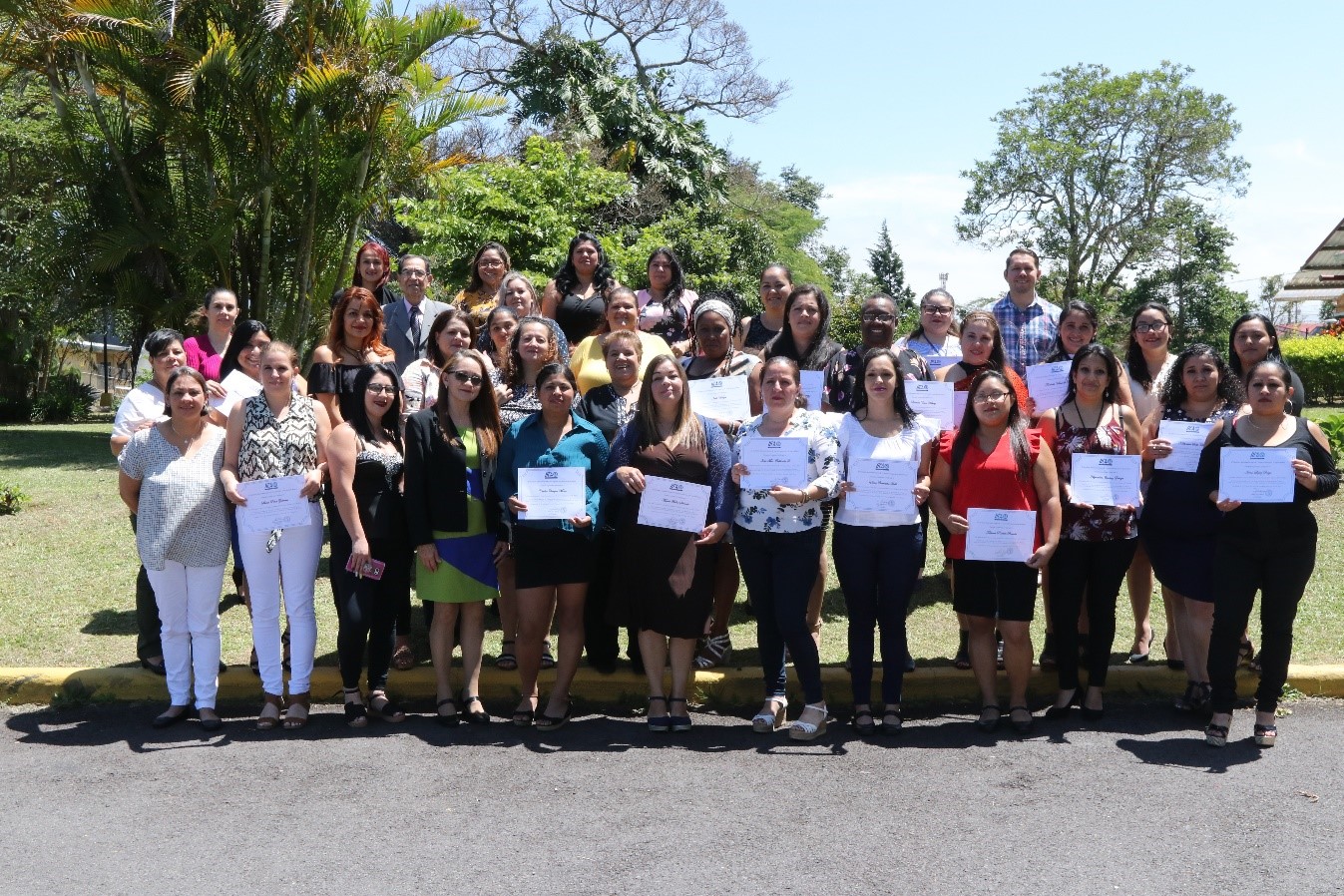They received training in empowerment, entrepreneurship, e-commerce, accounting, office automation and food handling.

San Jose, XX August 2019 (IICA) – A group of women entrepreneurs from rural areas of San Jose, Costa Rica are the first to complete a Course on Business Undertakings for Rural Women delivered by the Inter-American Institute for Cooperation on Agriculture (IICA) and the country’s Ministry of Labor and Social Security (MTSS), with support from the National Institute for Women (INAMU).
The initiative provided 45 rural women with more and better opportunities for generating income. The course is the first product of the Training Program for the Generation of Employment in the Rural Sector, led by MTSS and IICA.
“We have an obligation to support rural women in vulnerable situations. We are helping them to create networks of small-scale women entrepreneurs, which will enable them to assert their rights and achieve financial independence,” stated specialist Ana Patricia Vargas of INAMU’s Regional Development Area.
The women entrepreneurs who visited IICA Headquarters completed five modules over the course of two months, in order to develop their skills in matters related to empowerment, entrepreneurship, e-commerce, accounting, office automation and food handling.
“The knowledge they have acquired through the course will enable them to better manage their business undertakings and provide better sustenance for their families,” stated Kenneth Solano, Project Management and Agribusiness Specialist at the IICA Delegation in Costa Rica.
In addition to the course, MTSS also provided the course participants with a subsidy to enable them to invest time and energy in receiving training without affecting their childcare responsibilities or other occupations.
“Completing the course required a great amount of effort and commitment on the part of these entrepreneurs, who had to overcome many obstacles and complex situations associated with caring for their families and their condition of vulnerability,” remarked course instructor Juan Calivá.
At a later stage, IICA and MTSS will assess the possibility of developing additional programs to complement the knowledge acquired through the course and linkages to the Ministry’s funding scheme.
Watch here the impressions of the entrepreneurs about the course and the fair (spanish only):
More information:
Kenneth Solano, Project Management and Agribusiness Specialist at the IICA Delegation in Costa Rica











